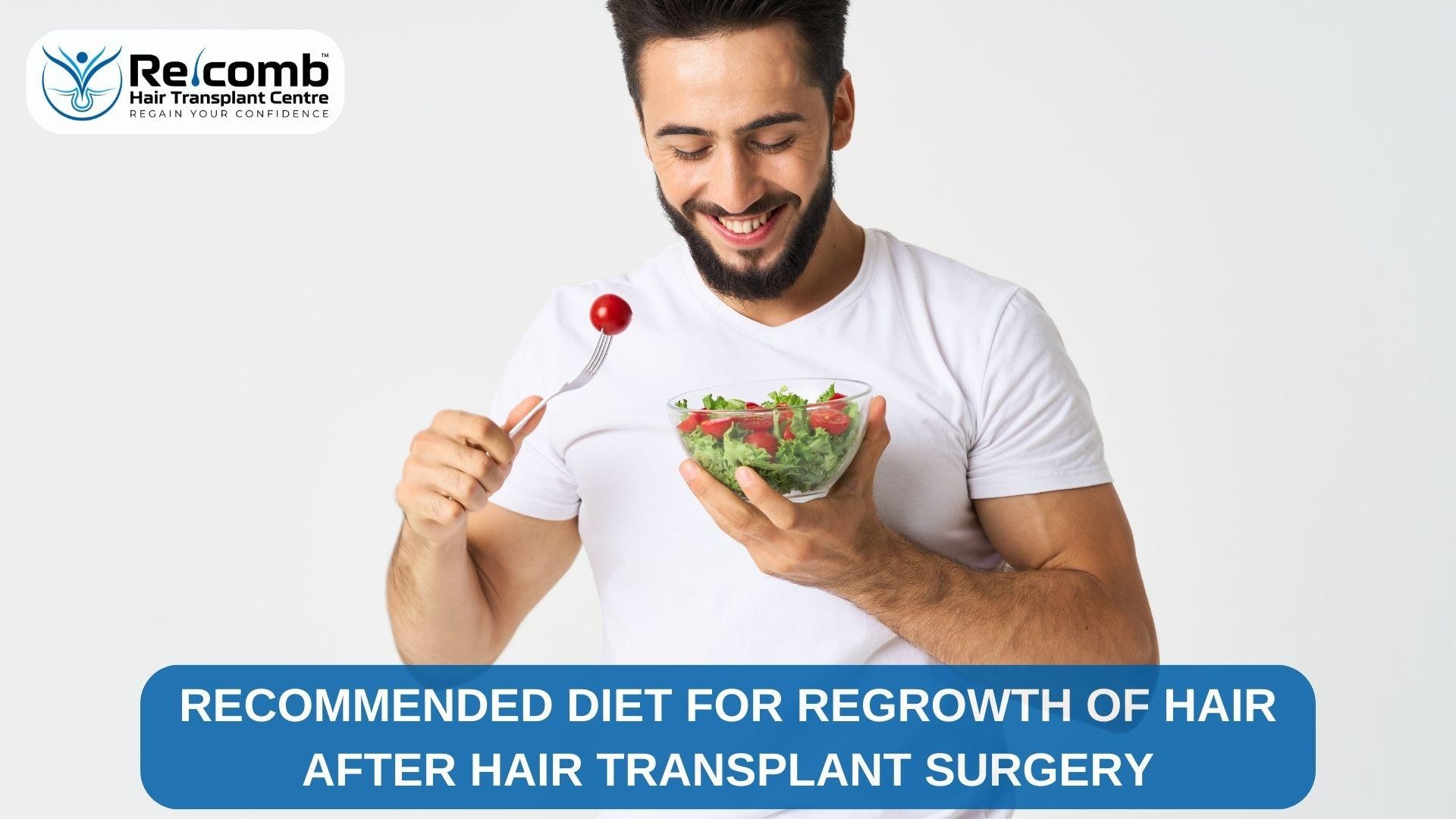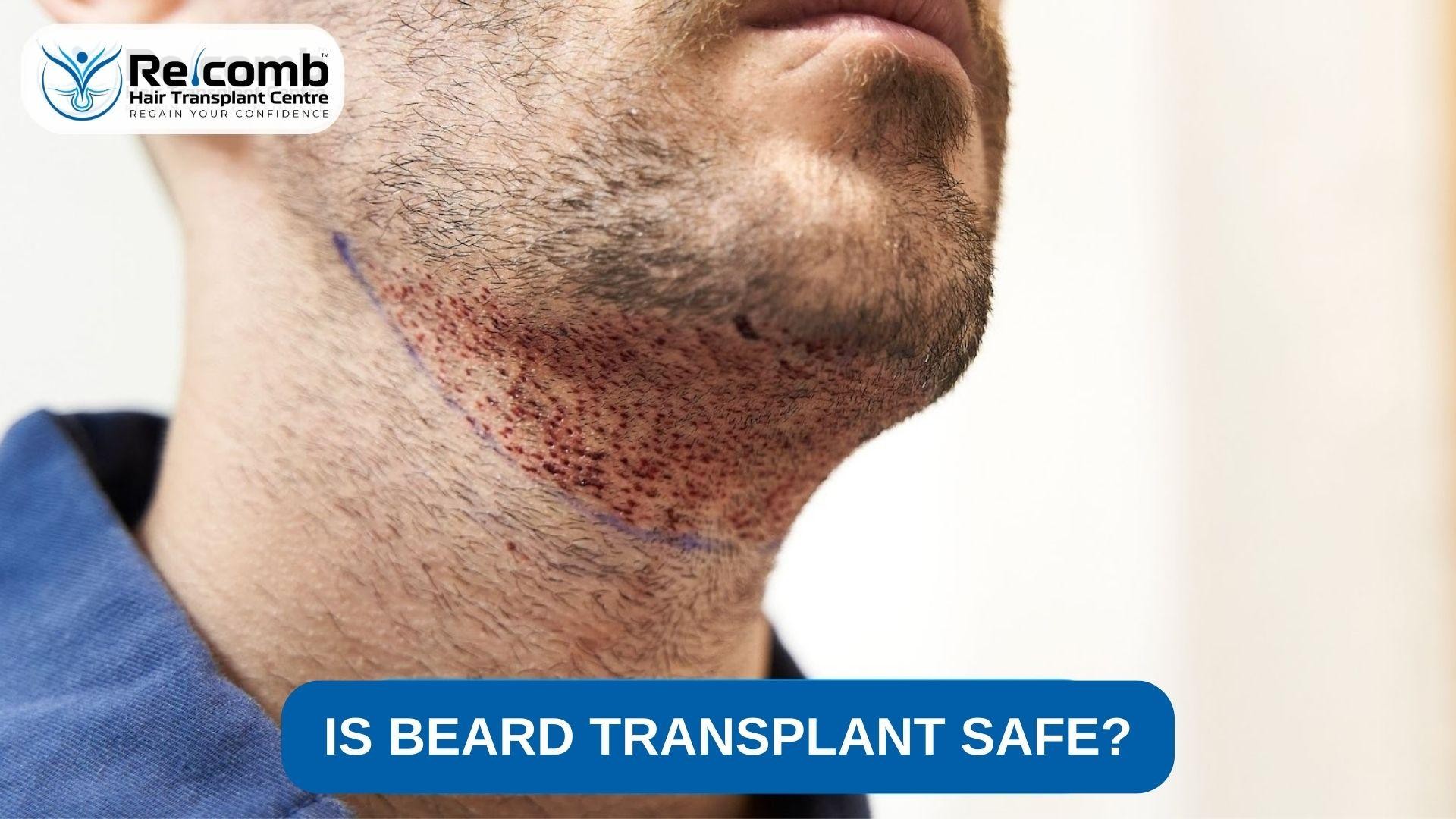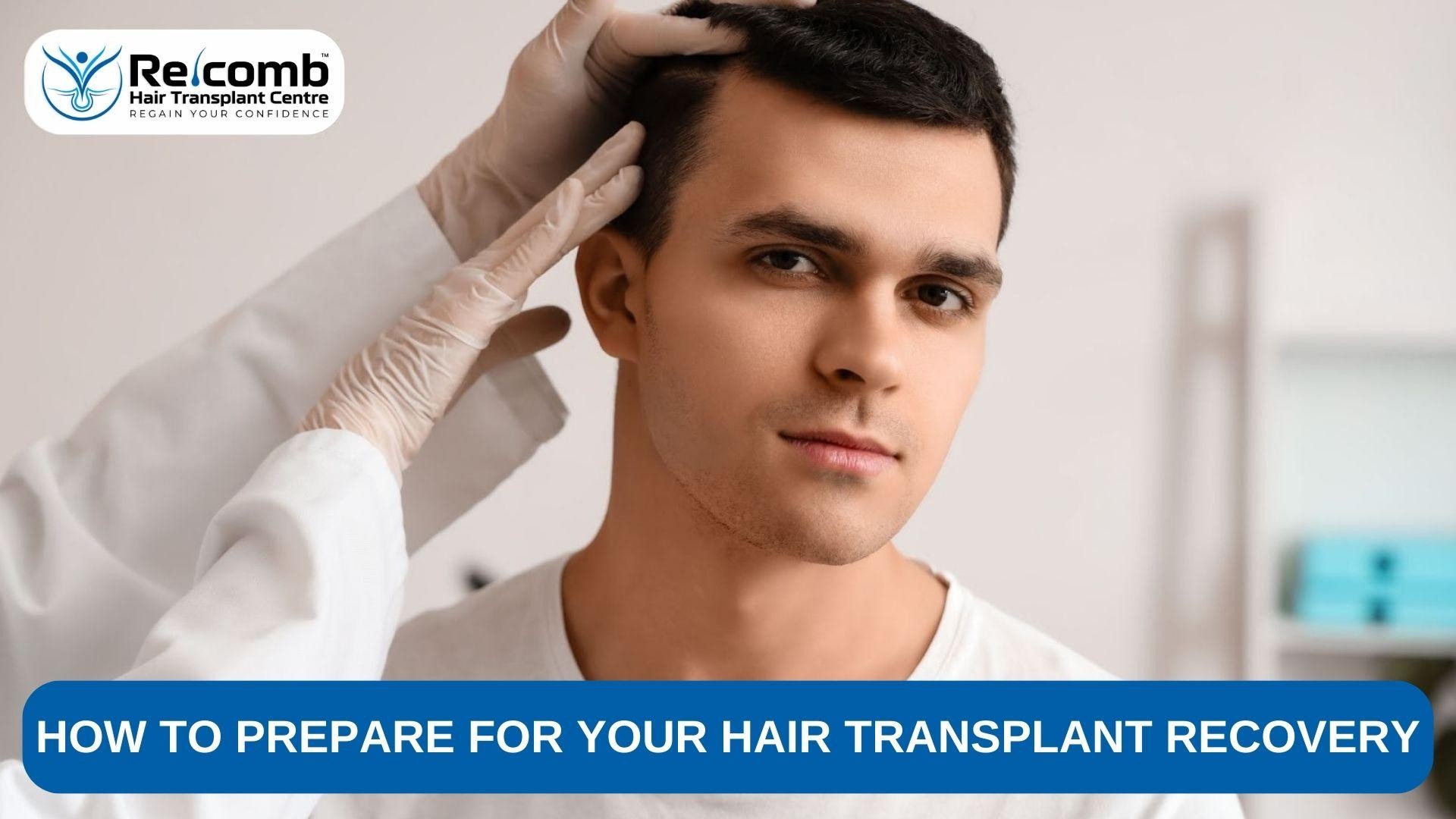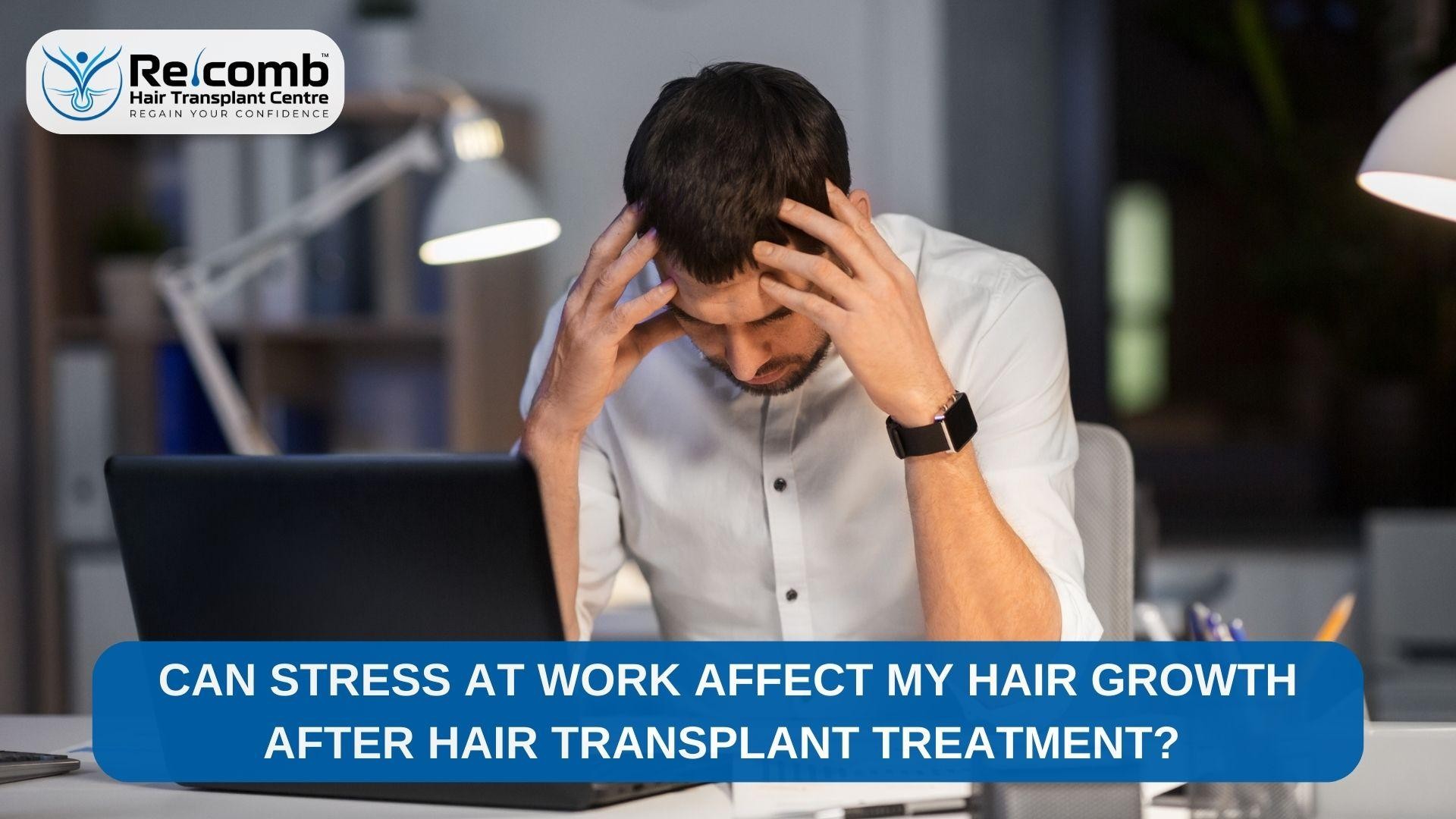
Hair transplant surgery is a significant step toward restoring hair loss, but the success of the procedure depends not only on surgical expertise but also on proper post-surgery care. One of the most important aspects of recovery is nutrition. Our experts at Recomb hair transplant centre, being one of the best hair transplant doctors in Surat stress on eating the right diet since it can promote healing, strengthen hair follicles, and accelerate hair regrowth. Here’s a guide to the best foods and nutrients to support hair growth after a transplant.
Why Diet Matters After Hair Transplant Surgery
The newly transplanted hair follicles require essential nutrients to survive and thrive. A balanced diet helps to:
? Reduce inflammation and promote healing
? Strengthen hair roots and prevent shedding
? Improve blood circulation to the scalp
? Provide the necessary building blocks for hair regrowth
To achieve the best results and to justify the cost of hair transplant in Surat, it is essential to consume a variety of nutrient-rich foods that support hair follicle recovery and regrowth, share our experts at Recomb Hair Transplant Centre — one of the best hair transplant centres in Surat.
Essential Nutrients for Hair Regrowth
Protein: The Building Block of Hair
Hair is primarily made of keratin, a type of protein. A high-protein diet ensures that hair follicles receive the necessary nutrients for strength and regrowth.
? Vegetarian Sources: Paneer, lentils (dal), chickpeas (chana), tofu, quinoa, almonds, cashews, milk, yogurt, and cheese.
? Non-Vegetarian Sources: Eggs, chicken, fish (salmon, mackerel), and lean meats.
Iron: Enhancing Blood Circulation
According to the best hair transplant surgeons in Surat, iron deficiency is a common cause of hair loss. Iron improves blood circulation, ensuring oxygen and nutrients reach the hair follicles.
? Vegetarian Sources: Spinach, beetroot, jaggery, sesame seeds (til), lentils, pumpkin seeds, and fortified cereals.
? Non-Vegetarian Sources: Red meat, liver, and chicken.
Biotin: Strengthening Hair Strands
Biotin (Vitamin B7) plays a crucial role in hair growth and scalp health. Its deficiency can lead to weak hair and increased hair loss.
? Vegetarian Sources: Nuts (almonds, walnuts, peanuts), bananas, sweet potatoes, and avocados.
? Non-Vegetarian Sources: Eggs and dairy products.
Omega-3 Fatty Acids: Nourishing Hair Follicles
Omega-3 fatty acids help keep the scalp hydrated, reduce inflammation, and improve hair elasticity.
? Vegetarian Sources: Flaxseeds, chia seeds, walnuts, mustard oil, and olive oil.
? Non-Vegetarian Sources: Fatty fish (salmon, sardines, mackerel).
Vitamin C: Boosting Collagen Production
Collagen supports hair follicles and promotes scalp health. Vitamin C also aids in iron absorption.
? Sources: Amla (Indian gooseberry), citrus fruits (oranges, lemons), guava, bell peppers, tomatoes, and papaya.
Zinc: Preventing Hair Shedding
Zinc helps repair hair tissues and prevents hair loss.
? Vegetarian Sources: Pumpkin seeds, chickpeas, cashews, and whole grains.
? Non-Vegetarian Sources: Oysters, beef, and chicken.
Vitamin D: Encouraging New Hair Growth
Vitamin D deficiency has been linked to hair loss.
? Vegetarian Sources: Mushrooms, fortified dairy products, and exposure to sunlight.
? Non-Vegetarian Sources: Fatty fish and eggs.
Hydration: Essential for Scalp Health
Water is essential for transporting nutrients to the scalp and keeping hair hydrated. Drink at least 8–10 glasses of water daily to maintain optimal scalp health. Coconut water is also beneficial for hydration and electrolyte balance.
Foods to Avoid After Hair Transplant Surgery
As suggested by our hair transplant surgeons in Surat available at Recomb hair transplant centre, certain foods can hinder the healing process and negatively impact hair regrowth. Avoid:
? Processed Foods — High in unhealthy fats and preservatives that cause inflammation.
? Sugary Foods — Can lead to increased hair shedding.
? Alcohol — Dehydrates the scalp and slows down healing.
? Excess Caffeine — Can lead to dehydration and affect blood circulation to hair follicles.
? Fried and Oily Foods — May contribute to scalp oiliness and clog hair follicles.
? Excess Spicy Foods — Can increase scalp sweating and irritation.
Sample Meal Plan for Hair Regrowth (Vegetarian & Non-Vegetarian Options)
Breakfast:
? Vegetarian: Besan chilla with mint chutney and a glass of fresh amla juice.
? Non-Vegetarian: Scrambled eggs with whole-grain toast and a handful of almonds and walnuts.
Mid-Morning Snack:
? Vegetarian: A banana with a handful of sunflower seeds.
? Non-Vegetarian: Greek yogurt with flaxseeds and honey.
Lunch:
? Vegetarian: Dal, brown rice, mixed vegetable curry, and a bowl of curd.
? Non-Vegetarian: Grilled salmon with quinoa and steamed spinach.
Evening Snack:
? Vegetarian: A smoothie with banana, berries, and chia seeds.
? Non-Vegetarian: A boiled egg with a handful of pumpkin seeds.
Dinner:
? Vegetarian: Palak paneer with whole wheat roti and a bowl of lentil soup.
? Non-Vegetarian: Grilled chicken with roasted sweet potatoes and a glass of warm milk.
Conclusion
A proper diet plays a vital role after getting a hair transplant treatment in Surat, as it ensures a smooth recovery and promotes strong, healthy hair regrowth after hair transplant surgery. Consume nutrient-dense foods, stay hydrated, and avoid harmful dietary choices to optimize the success of your transplant, and enjoy long-lasting results. Whether vegetarian or non-vegetarian, a balanced diet rich in essential nutrients will support your journey to fuller, healthier hair. Patience is key, and a good diet will help you achieve the best possible outcome. For any additional information and to know the cost of hair transplant in Surat, you can connect with us at Recomb hair transplant Centre.






